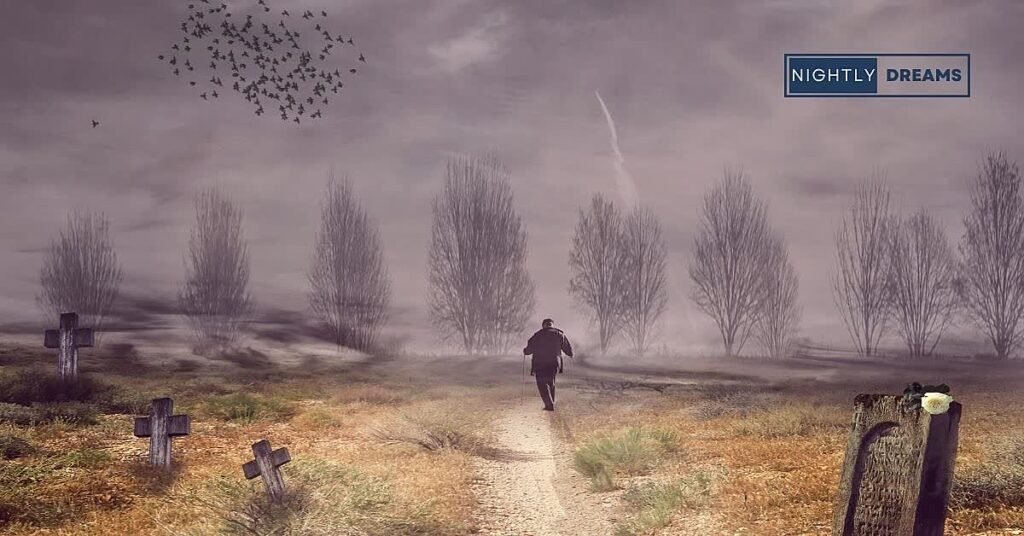What does it mean when you dream about the death of a family member? Such dreams can be unsettling, leaving you searching for answers. Whether it’s a reflection of your emotions, fears, or something deeper, understanding these dreams can provide clarity and peace of mind. Keep reading to uncover the possible meanings behind these vivid experiences.
Understanding Dreams About Death
Dreams about death, especially involving family members, can feel intense and emotional. These dreams often connect to your subconscious mind, reflecting inner thoughts and unresolved feelings.
Common Themes in Dreams
Certain patterns frequently appear in death-related dreams. They might symbolize endings, transitions, or changes in your life, rather than literal loss. For instance, a dream of a family member passing could signify your fear of change within your family ever-changing. These dreams might also reflect guilt, unresolved arguments, or a need for closeness.
Death dreams can also surface during times of personal transformation. If you’re facing major life shifts, such dreams could mirror your own psychological growth or the shedding of old habits. Context and emotions tied to the dream often offer clues about its meaning.

Emotional Impact of Dreaming About Death
Such dreams usually evoke strong feelings that linger even after waking. Fear, sadness, or confusion often dominate your emotional response, making these dreams memorable. If you’re experiencing stress or emotional struggles, these feelings might amplify the intensity of such dreams.
Dreaming about the death of a loved one might push you to reflect on your relationship with that person. In some cases, they reveal hidden anxieties about losing someone you care about. These emotions, but unsettling, can provide insights into your priorities and emotional well-being.
Symbolism of Death in Dreams
Dreaming about death often carries symbolic meanings rather than literal interpretations. Such dreams reflect important emotions and subconscious processing tied to life changes, fears, or personal growth.
Transformation and Change
Death in dreams often symbolizes transformation or the end of a phase. You might be undergoing a major life transition, such as starting a new job, ending a relationship, or moving to a new place. These dreams highlight the shedding of old habits or beliefs to create space for new beginnings. When you see a family member’s death in a dream, it can represent changes in your relationship or their role in your life.
Fear and Anxiety
Subconscious fears can manifest as death-related dreams. These symbolize your deeper anxieties about losing loved ones or facing the unknown. If you’re feeling uncertain or overwhelmed, your mind might use symbolic death scenarios to process these emotions. Dreaming about a family member might reflect fears tied to their safety, health, or absence.

Letting Go and Moving On
Death dreams also represent the process of releasing attachments. You may be letting go of emotions, situations, or relationships that no longer serve you. If a family member appears in such dreams, it could mean you’re reflecting on unresolved emotions or growing distant from a past connection. These dreams encourage acceptance and a focus on emotional healing.
Analyzing Dreams About Family Members
Dreaming about the death of a family member often connects to your emotions and subconscious mind. These dreams can reveal your inner conflicts, relationships, or emotional state.
Relationships and Connection
Family member-related dreams frequently highlight the strength or strain in your personal connections. Emotional distance, unresolved conflicts, or even growing closeness can surface through symbolic representations. For example, the death of a family member in a dream might symbolize a shift in that relationship, such as a growing emotional gap or changing dynamics. These dreams encourage deeper reflection on how you interact with loved ones.
Unresolved Issues and Guilt
Lingering guilt often presents itself in dreams. Past arguments, unspoken words, or unresolved issues find expression through such imagery. When a dream represents the death of a family member, it may reveal your deep-seated regret or guilt over interactions left unfinished. This could be an opportunity to confront these unresolved feelings and seek closure in waking life.

Reflection of Worries or Stress
Your fears and anxieties often manifest in dreams involving family. Stress from life transitions, financial problems, or worries about your family’s well-being might reflect in these dreams. These scenarios serve as emotional echoes that alert you to ongoing concerns in your life. Awareness of these stressors helps in addressing underlying issues and promoting emotional balance.
Cultural and Psychological Perspectives
Dreams about the death of a family member carry complex meanings shaped by cultural beliefs and psychological insights. These perspectives offer valuable interpretations to help understand the emotions and symbols associated with such dreams.
Cultural Interpretations of Dreaming About Death
Different cultural contexts assign various meanings to dreaming about death. In many Eastern traditions, death dreams are seen as a positive symbol of renewal or prosperity. Some cultures believe such dreams act as a warning or communication from spiritual realms, urging you to address unresolved relationships or seek guidance. Western beliefs often view these dreams as reflections of fear of loss or important life changes.
Religious interpretations also vary. In Christianity, dreaming about a loved one’s death might signify spiritual awakening or encouragement to deepen your faith. Conversely, in Hinduism, these dreams could symbolize karmic cycles, pointing to the ending of one phase and the beginning of another. Cultural narratives shape how you perceive and react to the emotions that these dreams evoke.

Insights From Psychology and Dream Analysis
Psychological perspectives focus on the symbolic and emotional content of death-related dreams. From a subconscious point of view, these dreams often represent personal transitions, unresolved conflicts, or suppressed fears. For instance, imagining a family member’s passing might reflect shifting dynamics in your relationship with them or anxiety about changes affecting your family unit.
Dream analysis theories propose that these experiences serve as emotional processing tools. Sigmund Freud suggested dreams tap into hidden desires or repressed thoughts. Carl Jung emphasized their connection to your psyche, seeing death dreams as a metaphor for transformation or self-discovery. Stress and guilt from unresolved issues often surface in these dreams, offering you a safe space to confront and process emotional challenges.
Understanding the cultural and psychological layers of these dreams enables you to interpret their personal meaning more effectively.
How to Process These Dreams
Understanding dreams about a family member’s death can help reduce their emotional impact and uncover their deeper meaning. Taking active steps fosters clarity and emotional growth.
Journaling and Reflection
Maintaining a journal allows you to document recurring dreams and uncover patterns. Write down details immediately upon waking to capture vivid images and emotions before they fade. Reflect on how the dream imagery connects to your current life situation, such as changes or unresolved issues. Question what emotions the dream evokes. For instance, feelings of sadness may signal missed opportunities for connection, while fear might indicate anxieties about change or loss. Journaling serves as a tool to externalize your thoughts and provides a space for self-awareness.
Consulting Dream Interpretation Resources
Exploring dream dictionaries or symbolism guides offers additional perspectives to interpret exact elements in your dreams. Locate definitions for recurring themes, such as death symbolizing transformation or family embodying emotional bonds. Compare interpretations across multiple resources to find insights that resonate with your unique experiences. Many spiritual and psychological frameworks perceive dreams as guidance from the subconscious, making diverse resources valuable for deeper understanding. Tailor your exploration by focusing on elements relevant to your relationships, transitions, or personal growth.

Seeking Professional Guidance if Needed
Captivating with therapists or counselors creates opportunities to explore recurring dreams in a safe, supportive setting. Licensed therapists specializing in dream analysis may help decode complex symbols and identify underlying emotional triggers. If the dreams evoke important distress or interfere with daily life, professionals provide coping strategies to ease psychological discomfort. Also, therapists often help discussions about unresolved family dynamics or trauma tied to the dreams, fostering personal healing and emotional balance.
Conclusion
Dreaming about the death of a family member can be deeply emotional, but it often carries symbolic meanings rather than literal ones. These dreams provide a unique glimpse into your subconscious, highlighting personal transitions, unresolved emotions, or fears. By reflecting on these dreams and exploring their symbolism, you can uncover valuable insights about your relationships, priorities, and emotional well-being.
Approaching these dreams with curiosity rather than fear allows you to embrace their potential for personal growth. Whether through journaling, seeking professional guidance, or understanding cultural perspectives, you can use these dreams as tools for self-discovery and healing.







